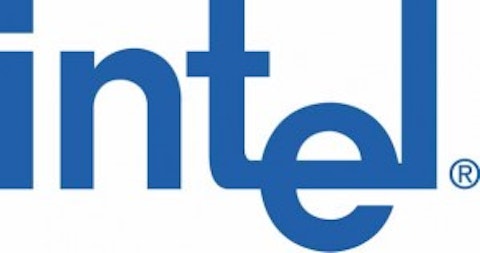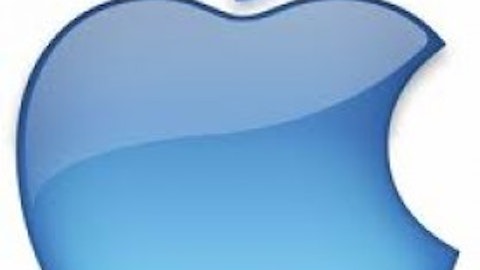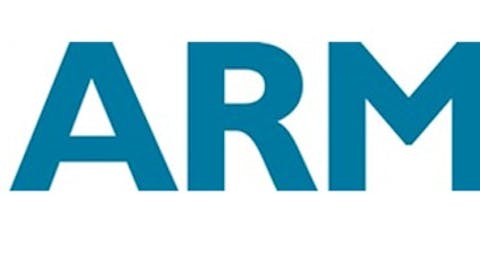
The software king
Microsoft Corporation (NASDAQ:MSFT) has reported earnings, but they came in well below the analysts’ consensus.
Revenue rose by 13% to $19.8 billion, from $18.0 million for the fourth quarter of fiscal year 2013. Its net income was $4.96 billion, or $0.59 per share, up from a net loss of $492 million, or $0.06 per share. Although it may seem a great quarter in general, it is not. The information here is misleading. Here is why.
Windows 8 was released last year, but the fourth quarter 2012 earnings statement did not include revenues from Windows 8. Therefore, we are comparing a release-year against a non-release-year. To compare apples with apples, we must look at the fourth quarter of 2010 because the Windows 7 was released on October 2009.
For the fourth quarter 2010, strong Windows 7 sales drove revenues to 23% growth, and 30% operating income growth. At that time, 15% of the PCs were running on Windows 7 already.
Conversely, according to NetMarketShare.com, a website that gathers data from users surfing the web, only 5% of users had Windows 8 installed on their computers. Conversely, 37% of users still use the “outdated” Windows XP, and 44% have Windows 7 installed on their computers.
Microsoft Corporation (NASDAQ:MSFT) is trying to come up with an operating system that is appealing to users. Therefore, Windows is being updated to Windows 8.1 “Blue.” The OS will incorporate some of the features from previous versions such as the “Start Button.”
On the positive side of things for Microsoft Corporation (NASDAQ:MSFT), the company has diversified to the video gaming sector. The third version of the Xbox should be released to the public in the second half of 2013. Although it will likely face competition from Sony Corporation (ADR) (NYSE:SNE) Playstation for market share, I believe revenues should pick up in the interim.
This will partially offset the low revenues from the software section, particularly the Windows division.
Other companies that were kings…
Intel Corporation (NASDAQ:INTC) was also the processor chips king in the PC industry. Although it faces competition from Advanced Micro Devices, Inc. (NYSE:AMD), Intel Corporation (NASDAQ:INTC) has many loyal customers. Its products are top-end quality with high processing speeds, although they come with a premium price too. Nonetheless, most of the computers use Intel Corporation (NASDAQ:INTC).
Although there are no new players in the PC processor chip race, the sales of Intel declined according to its most recent earnings report. Its revenue declined from $13.5 billion to $12.8 billion. Its net income declined by 25% from $2.8 billion, or $0.54 per share, to $2.0 billion, or $0.39 per share.
Intel Corporation (NASDAQ:INTC) reported declining volume sales and declining prices for notebooks and desktops. Therefore, it is time for the processor chip to diversify and expand to other markets. The tablet industry seems to be a good market for Intel Corporation (NASDAQ:INTC). However, there is tough competition already from ARM Holdings plc (ADR) (NASDAQ:ARMH).
Perhaps with the introduction of a more appealing operating system by Microsoft Corporation (NASDAQ:MSFT), users will begin buying desktops and notebooks again. This will benefit Intel as revenues are likely to come up. However, it is entirely up to how well the Windows Blue is received.
Therefore, investors should avoid investing in Intel for the time being.
The competition of Intel is not doing well either, but its future may be better
Advanced Micro Devices, Inc. (NYSE:AMD) may have a brighter future. Although its processor chip sales were down according to its most recent earnings report, its future may be great.
Its revenue declined 18% from $1.41 billion to $1.16 billion. Consequently, the company swung from a net income of $37 million, or $0.05 per share, to a net loss of $74 million, or $0.10. One remarkable statement from Advanced Micro Devices, Inc. (NYSE:AMD) is that its revenue segment increased 12% sequentially.
AMD’s future may be sharper since its products will be in the Nintendo Wii, Sony PS4 and the Xbox One. Regardless of the video gamer’s preference with respect to the console they will use, AMD will profit equally nonetheless. AMD just has to focus on delivering improvements to the processor chips, so the concession is kept for the future versions of the consoles.
Also, Advanced Micro Devices, Inc. (NYSE:AMD) achieved a milestone in the processing speeds by unveiling the FX-9590 desktop processor. It is the first commercially available 5 GHz processor on the market. It surely will set higher standards for the next generation of processors.
For these reasons, I believe Advanced Micro Devices, Inc. (NYSE:AMD) may be regarded as a speculative play.
My two cents
The PC industry is without a doubt under huge pressure from tablets. Intel Corporation (NASDAQ:INTC) and Microsoft Corporation (NASDAQ:MSFT) are seeing their revenues decrease substantially, and investors should reassess their investment in these companies. Microsoft may fare better in the future due to the launch of the Xbox One. The unveiling of the gaming console will also benefit AMD. It will provide the chips not only for the Xbox One, but also for the PS4. In brief, Intel is a No, Microsoft is a Maybe, and Advanced Micro Devices, Inc. (NYSE:AMD) is a Maybe-Yes.
The article Why You Should Reassess Your Investment in These Stocks originally appeared on Fool.com and is written by Robinson Roacho.
Robinson Roacho has no position in any stocks mentioned. The Motley Fool recommends Intel. The Motley Fool owns shares of Intel and Microsoft. Robinson is a member of The Motley Fool Blog Network — entries represent the personal opinion of the blogger and are not formally edited.
Copyright © 1995 – 2013 The Motley Fool, LLC. All rights reserved. The Motley Fool has a disclosure policy.





